rile*books
rile*books is a Brussels based bookshop and project space for performance and publication. Open Tuesday to Sunday, 11-18h.
events
[Launch] MAKAN #3 Synthetic Agencies
Join us for the launch of MAKAN #3 / Synthetic Agencies. The journal, published by Think Tanger, explores themes of control, resistance and the architectures of the unseen. We will be joined by MAKAN's editor-in-chief Ali T. As’ad and publication director Hicham Bouzid alongside Fehras Publishing Practices and Saba Innab and Nuha Innab from OPPA Research Architecture. The event was made possible through the collaboration of Tashattot Collective.
read moreabout [Launch] MAKAN #3 Synthetic Agencies[Launch] 45-120, with Bea Ortega Botas and Leto Ybarra
Welcome to the launch of 45-120, a bilingual anthology of poetry edited by Juf project and published by Caniche editorial, 2025. The publication brings together the work of eighteen contemporary poets to reflect on how political, social, sexual, racial, class, and accessibility factors shape our notions of personal space. We will be joined by editors Bea Ortega Botas and Leto Ybarra for a reading and presentation.
read moreabout [Launch] 45-120, with Bea Ortega Botas and Leto Ybarra[Launch] Making Kin II: Plants
Join us for the launch of Making Kin II: Plants for an evening exploring xenofiction and its potential to grasp the world from the perspective of a non-human other. Catalina Imizcoz, director of Cthulhu Books, and contributors Bianca Baldi and Anastasia Eggers will present their work with a conversation about the Making Kin series, followed by beautiful authors’ readings.
read moreabout [Launch] Making Kin II: Plantsrecent arrivals
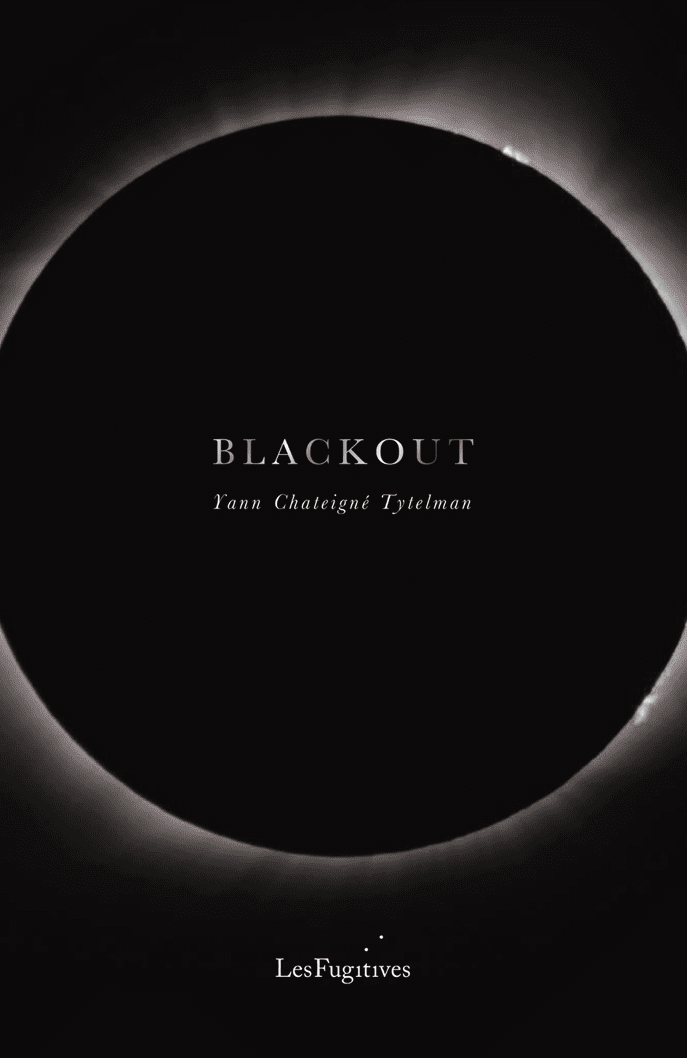
Blackout
Spring 2020. During lockdown in a mountain village with his partner and young child, Yann Chateigné Tytelman becomes haunted by the presence of his dead father. Provoked by memories of him, of their laconic relationship and of the class antagonisms that emerged between them – the father was a manual labourer while his son ‘turned his back’ and entered the art world – Chateigné Tytelman starts writing letters, piles of them, which have as their subject that most mystical, most incomprehensible of phenomena: silence.
Condensed into a series of short fragments, Blackout interweaves the letter to the father with the observations of an art theorist who surveys with precision the occurrences and experiences of silence in painting, music, literature and philosophy.

Moral Abdication: How the World Failed to Stop the Destruction of Gaza
How most Western governments and elites have supported the destruction of Gaza and silenced voices calling for the rights of Palestinians.
Providing a record of the first six months of the war waged by the Israeli army after the 7 October attacks and drawing on a rich range of international sources, Didier Fassin examines how most Western governments have acquiesced in and often contributed to the destruction, by the Israeli army, of Gaza, its homes, infrastructures, hospitals, institutions of education, and civilian population. To justify their support and prevent criticism, they have provided an official version of the events, adopting the Israeli narrative. It was largely taken up by mainstream media, which ignored the experiences and perspectives of Palestinians. Dissenting voices were silenced. A policing of language and thought was imposed. Censorship and self-censorship became normalized.
To call for a ceasefire or to demand the respect of humanitarian law was enough to prompt the ever-ready accusation of antisemitism. Exploring the multiple dimensions of the extreme inequality of lives between the two sides of the conflict and analyzing the complex geopolitical, economic and ideological stakes that underlie it, Fassin intends to constitute an archive of this moral abdication. In his view, the abandonment of the values and principles proclaimed by Western elites to be foundational will leave a deep scar in the history of the world.
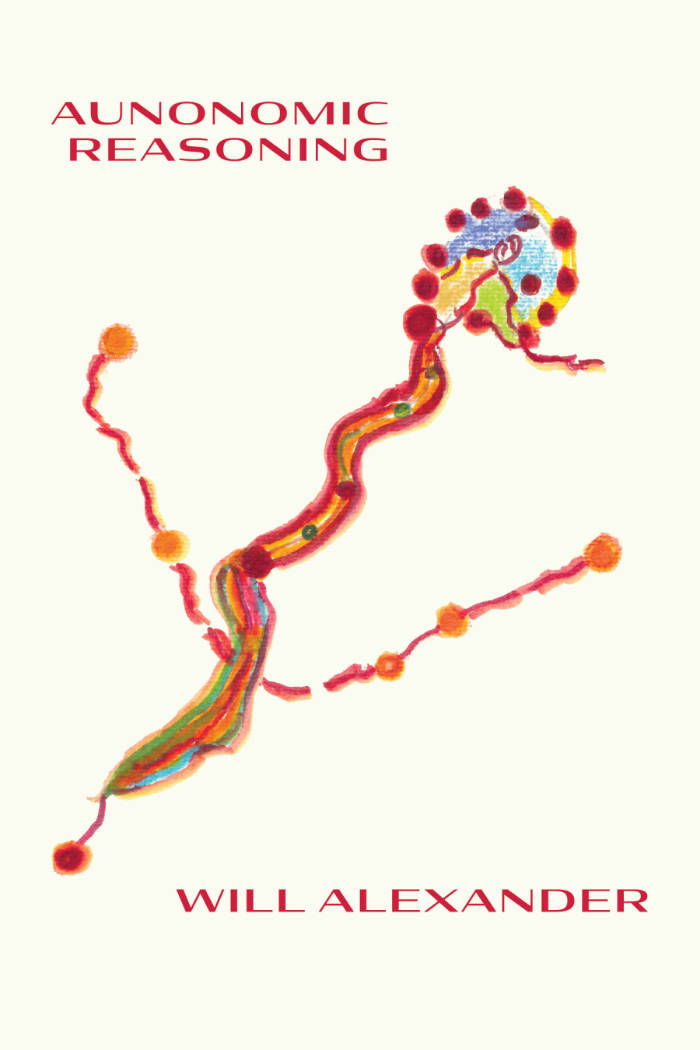
Aunonomic Reasoning
Precipitous philosophies. Synaptic-nerve narrations. Syntactic spirals. Hyper-coiled horizons. Will Alexander’s mental range has arrived. An anomalous scripting of the word “automatic,” Aunonomic Reasoning is a whirlwind of lingual torrents triggered by creative mishearing that at once exposes the occupations of orthodox surrealism, summons a voice for the scathed populace of imperial affliction, and forges new paths of phonetic potentiality to mend semantic injury. Pushing prosaic margins beyond their boundaries, these texts take on the etymological condition of the essay as “attempt” with iridescent siege, prepositional frenzy, paratactic provocation, noetic disreckoning, and a critical demand to dismantle: all of which signatures of Alexander’s unilateral poetic innovations.
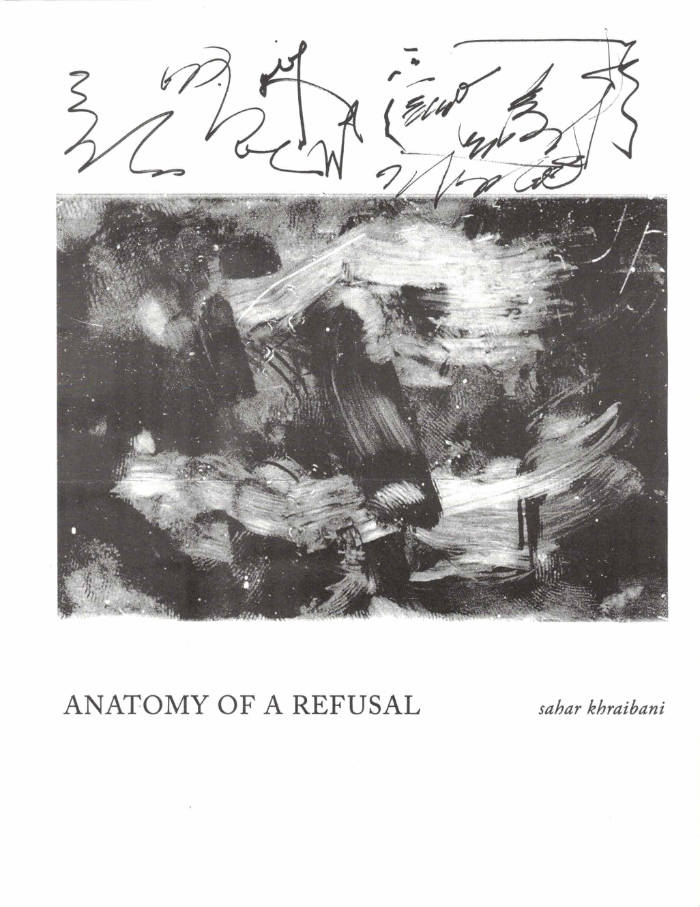
Anatomy of a Refusal
Written after the Beirut Port Explosion on August 4, 2020, when 2,750 tonnes of ammonium nitrate exploded in the commercial and residential port of Beirut after years of warning and mismanagement, Anatomy of a Refusal drifts between lineated and prose poetry, creating a transitional space of mourning. Comprised of three sections, “Mutually Assured Destruction” confronts displacement; “Blast” erases and rescribes bureaucratic documents written about the explosion, and “Deterrence” “return[s] to the place of injury.”
Intertextually poetic, Sahar Khraibani writes in conversation with other writers and philosophers to question, “who owns my language?” and “What does it mean to be in / place?" And yet, between bureaucracy and philosophy, there are moments of intimacy, friendship coexisting in the shared space of the poem—between speaker and addressee, the body and the living world—where belonging carries the weight of grief.
—Blurb written by Clarise Reichley
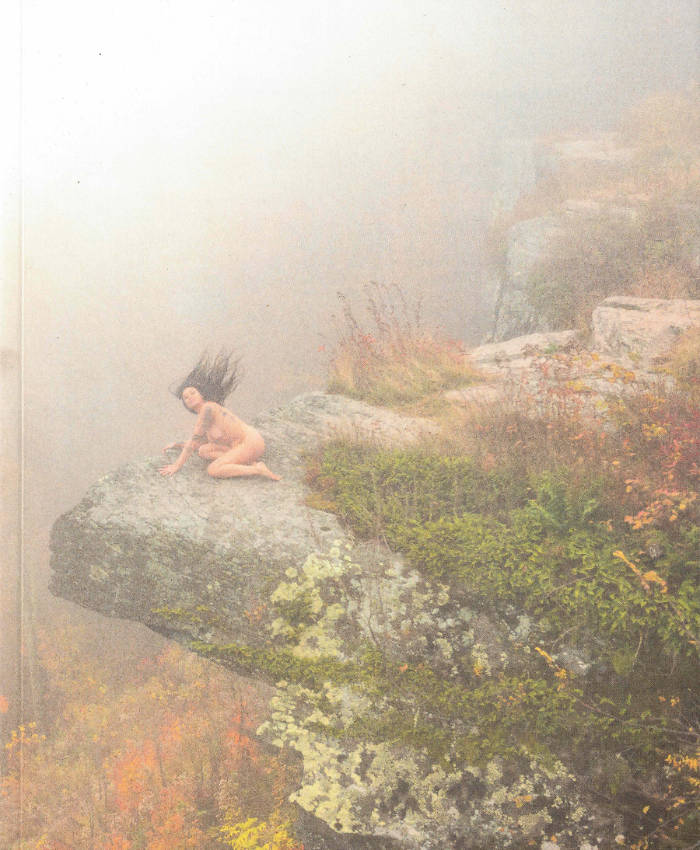
Butterflies Come Out At Night
A fullness of the erotic that pervades the entirety of the book to its edges, where a continual corruption of our often unexpressed desires overflows into forms both lyrical and traditional. "Butterflies Come Out At Night" continuously asks where the "you" stands, and if desire can empower one to reach a fullness of self. No othering, but flowing seamless from source to rapid source. The book explores this encompassing and embracing body of care and power through poetry, collage, enchantments, and spells and keeps an aura that constantly shifts where the erotic nature of both writer and reader bloom through out the reading.
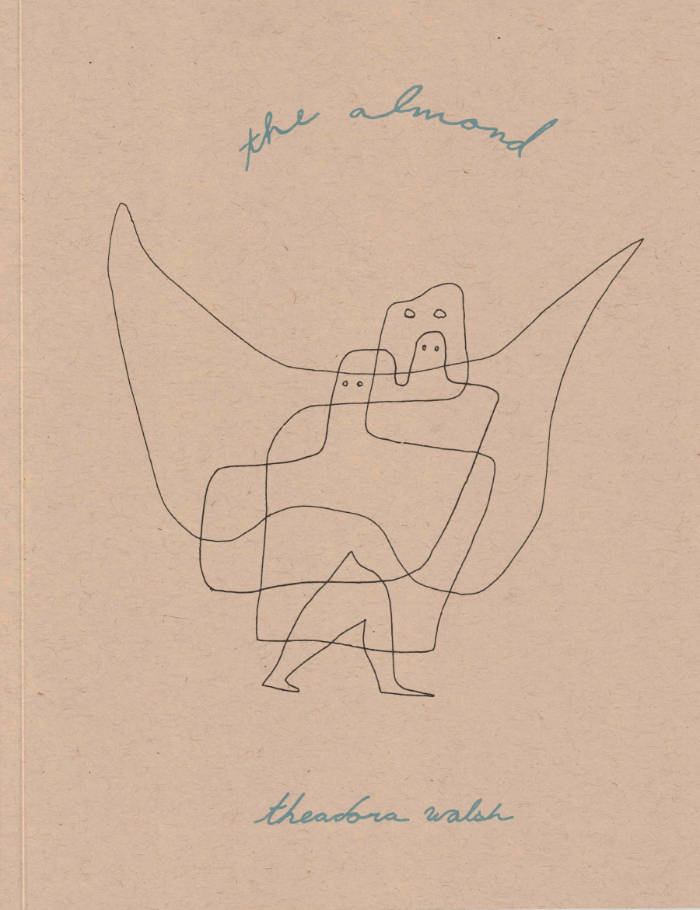
The Almond
“Today is the day with the letter,” Celan writes to Bachmann on October 30, 1957. Theadora Walsh’s essay-poem, The Almond concerns, for I hesitate to write “about” or “is in relation to”, the love between Paul Celan and Ingeborg Bachmann. Two Austrian writers flung across Europe by the atrocities of the Holocaust, excavating the narrows of a language not theirs, or taken from them. An almond is the closest two people can be, and becomes the binding structural conceit of the book, two segments reaching across the blank page to each other, across history, time and language.
![Cover of [45-120]](https://rile.space/storage/3794/01K7RPFBTZPK0NE1VQTCYB68XK.jpg)
[45-120]
Personal space is understood as the distance between 45 and 120 cm that surrounds a person. This bilingual anthology brings together the work of eighteen contemporary poets who take this intimate measurement as a starting point to challenge its apparent rigidity and explore how political, social, sexual, racial, class, and accessibility factors shape it. Beyond a simple physical distance, personal space also becomes a stage where desire draws and negotiates the boundaries between the inside and the outside.
The publication contains contributions by Samuel Ace, Justin Chin, Kyle Dacuyan, Rhea Dillon, Tracy Faud, Elijah Jackson, Taylor Johnson, Nadia Marcus, Park McArthur, Nat Raha, Joan Retallack, Trish Salah, Juan de Salas, María Salgado, Assotto Saint, Cedar Sigo, S*an D.Henry-Smith, Nayare Soledad, Perla Zúñiga.
Bilingual edition, edited by Juf.
JUF (Bea Ortega Botas and Leto Ybarra) explores the relationship between poetry, contemporary art, and theatricality through the organization of performances, readings, and exhibitions. They also publish online texts and a PDF series as an extension of their curatorial and research practice. Currently based between Madrid and New York.

Love & Lightning
Love & Lightning: A Collection of Queer and Feminist Manifestos is a thematically ordered, inconclusive collection of queer, feminist and queer-feminist manifestos. Girls Like Us Magazine and author Sarah van Binsbergen have composed a publication showcasing the different forms a manifesto might have, from classical, activist formats to more poetic, associative texts. The manifestos highlighted in this book cross borders, forms and disciplines, refuse binary logics, transcend our concepts of time and space and surpass the neoliberal logic.
Love & Lightning does not claim to be a complete anthology, but it rather aims to show the myriad of ways manifestos can be composed, and what their legacy until this day is. It presents manifestos from 1851 until now, divided into eleven chapters, introduced in their socio-historical and geographical contexts, with many from Asia, Africa, Latin-America. Not only does this publication give new insight in the style of the manifesto, it aims to emancipate the reader to propose their own revolution, whether big or small.
Manifestos include: Ain’t I a Woman by Soujourner Truth; Work Will Not Save Us: An Asian American Crip Manifesto; Rest is Resistance by Tricia Hersey; The Manukan Declaration of the Indigenous Women’s Biodiversity Network; W.I.T.C.H. Manifesto; Fag Hags Fight Back!!!; Manifesto for Maintenance Art by Mierle Laderman-Ukeles; Dyke Manifesto from the Lesbian Avengers; Killjoy Manifesto by Sara Ahmed; Xenofeminism: A Politics for Alienation by Laboria Cuboniks; The Empire Strikes Back: A Posttransexual Manifesto from Sandy Stone; Refugia! Manifesto for Becoming Autonomous Zones by subRosa; Countersexual Manifesto from Paul B. Preciado; and many, many more.
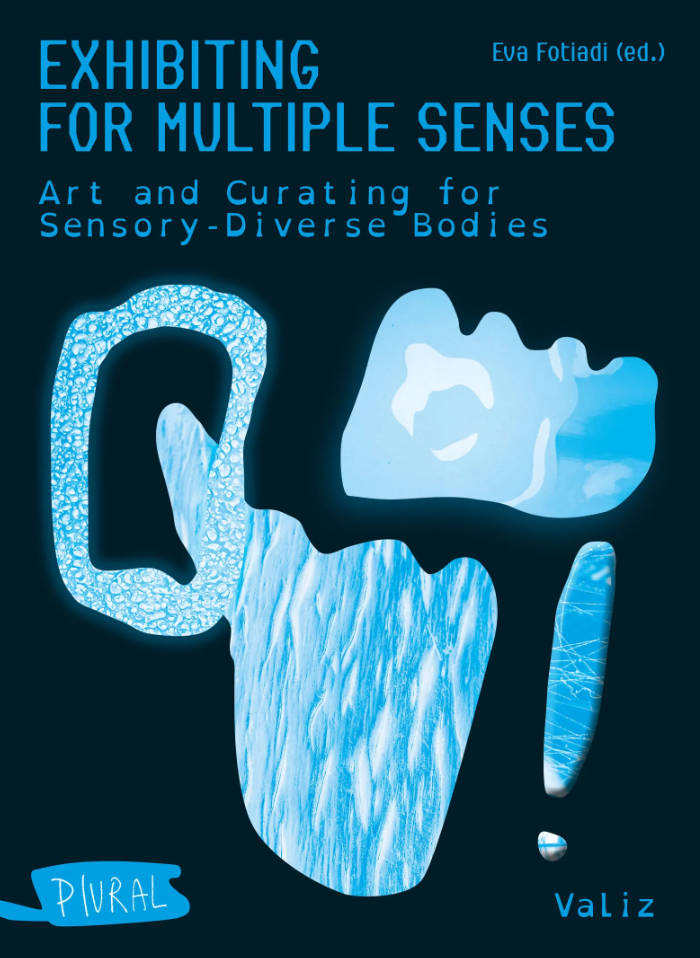
Exhibiting for Multiple Senses
Exhibiting for Multiple Senses looks into artistic and curatorial research practices that emphasize the multisensory character of the human body in the encounter with artworks. For some time now, numerous contemporary artists and curators have moved beyond the primacy of the visual in the experience of art exhibitions. The book discusses this shift by bringing together experimental exhibition-making, curatorial theory, art, design, and museum research, disability activism and crip theory. Its intent is to demonstrate resonances between curatorial theory and practice and between disability and crip art activism. While the latter is still often regarded as relevant for only small portions of visibly disabled people, in recent years neurodiversity and invisible disabilities have proven to be relevant for the sensory experiences of much larger parts of exhibition audiences.
Exhibiting for Multiple Senses shares famous and lesser-known examples of experimental exhibitions as well as of artistic practices linked to exhibitions. By mobilizing the senses of touch, smell, taste, and hearing, as well as applications of multimodal technologies and insights from neuroscience, these examples all explore abilities and possibilities of the complex and diverse sensory apparatus that is the human body.
Contributors: David Bobier, Luca M. Damiani, Stephanie Farmer & Hettie James, Eva Fotiadi, David Gissen & Georgina Kleege, Adi Hollander, Lilian Korner, Elke Krasny, Renata Pękowska, Caro Verbeek
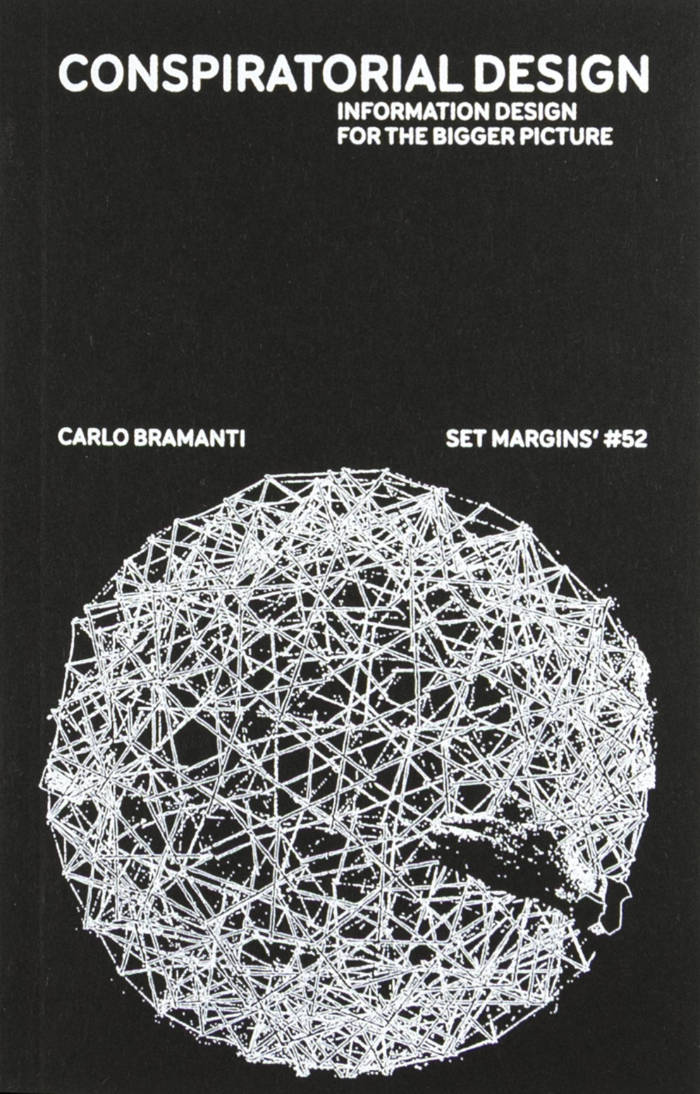
Conspiratorial Design. Information design for the bigger picture
This book deals with Design and Conspiracy Theories, two things that are often thought of as opposites. Design is generally perceived as something that simplifies and targets the essence of things; something that should say the Truth. Conspiracy theories instead are far-fetched and create confusion. Design is expected to be able to bypass false rhetorics because its very premise is to deal with how things work in reality. However, what is argued in this book is that design and conspiracy theories mirror each other. They act with similar goals and they adopt comparable representations. They intersect in their practices and in their artifacts because they share a common ground at their fundaments. This common ground is Conspiratorial Design.
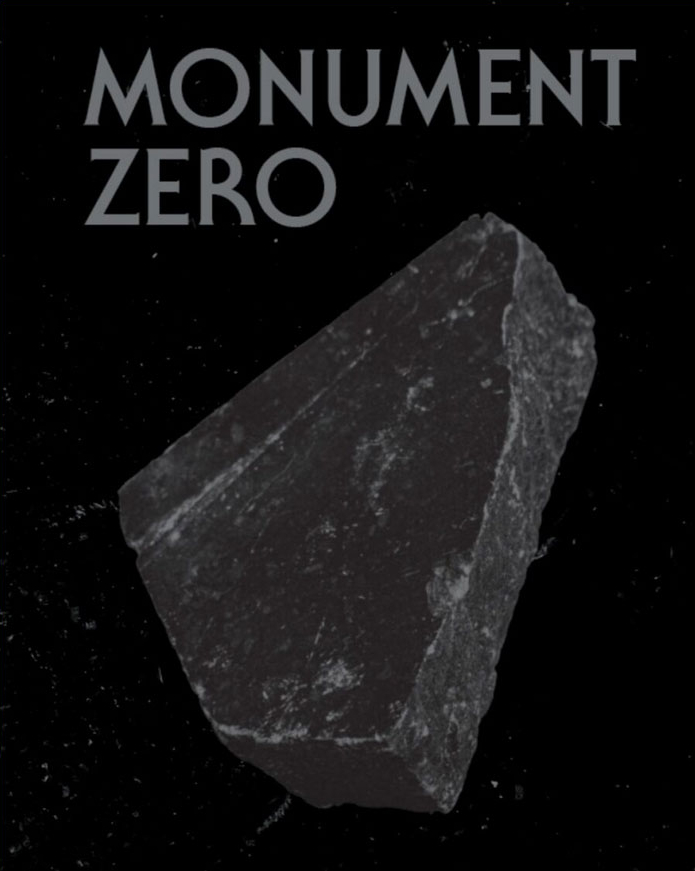
Monument Zero
Niloufar Nematollahi, Jose Rosales
Monument Zero emerges from International Women’s Day on 8 March 1979 in Iran. The archival materials that form the starting point depict six days of protests, sit-ins, and conferences that began on this day in Tehran. These historical objects have been preserved by the mercy of their creators, who were present during the 1979 protests, and are scattered across personal and public holdings worldwide. By bringing together the materials that depict this forgotten history, Monument Zero counters historical erasure and explores the preservation of political struggles through collective artistic practice.
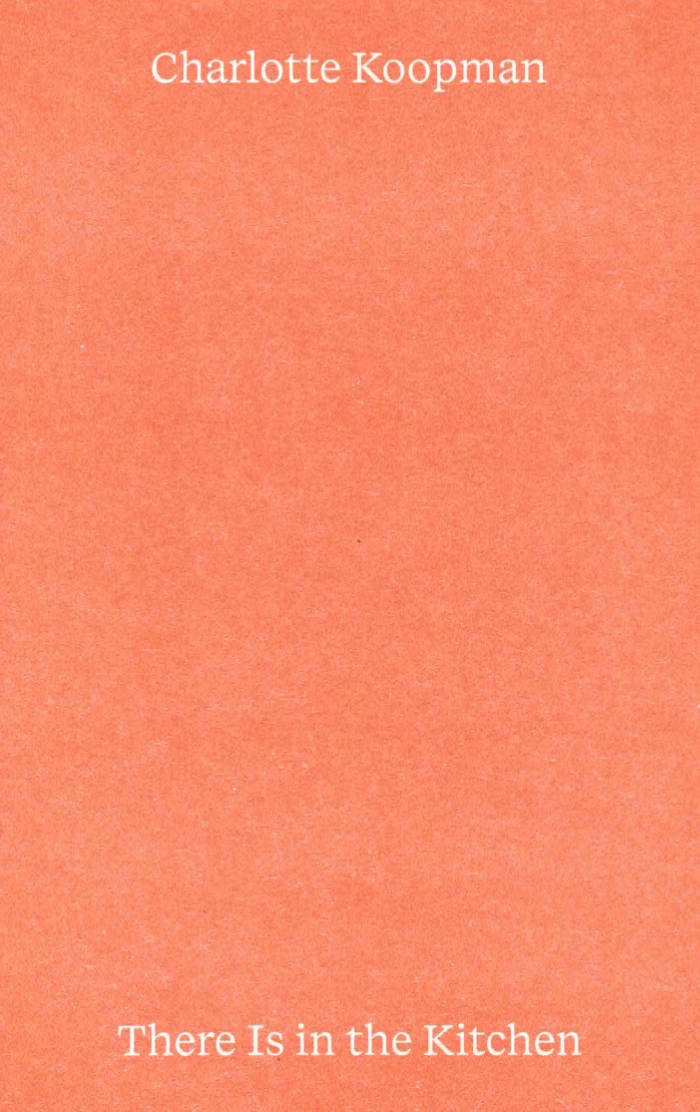
There Is in the Kitchen
Charlotte Koopman has run a kitchen for the past 15 years and has always responded to both crises and festivities by cooking. ‘There Is in the Kitchen’ is a look at how to begin writing, which turns out to be not that different from preparing a meal. Both are prose bordering on poetry, both speak in a multitude of languages.
‘There Is in the Kitchen’ is a series of essays, an inventory of what coexists in the kitchen, a larder stocked with particular interests. Ranging from the singular- Mandarino Tardivo di Ciaculli or Pistacia Terebinthus to the expansive- the cross- rhythm, close encounters, seasonality.
![Cover of [Launch] MAKAN #3 Synthetic Agencies](https://rile.space/storage/3720/01K6FN1BMRY41J76Y603RZB9ZZ.jpg)
![Cover of [Launch] 45-120, with Bea Ortega Botas and Leto Ybarra](https://rile.space/storage/3713/01K6D4ZT8Q0K4RPZFYS200TDY7.jpg)
![Cover of [Launch] Making Kin II: Plants](https://rile.space/storage/3777/01K7M320G8RMT64CWGYG8QT6H4.jpg)